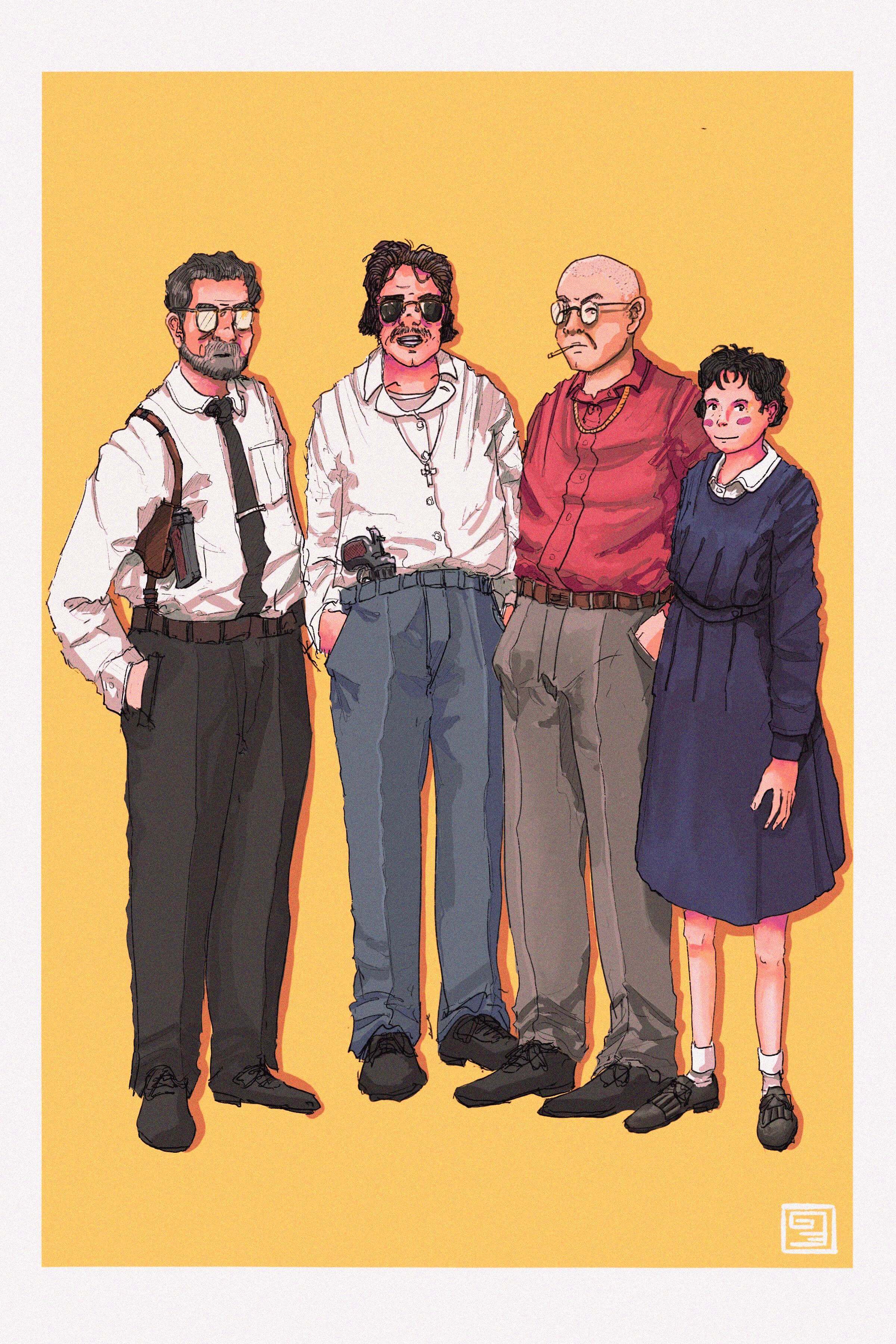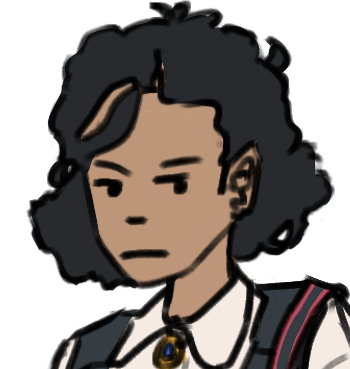NEW Story: Cocktail
AB/NI’s Spectres of Violence

This article is not part of Vekllei canon. It may be old, obsolete or just a bit of fun.
The Americas Bureau at National Intelligence (AB/NI), a semiautonomous organ of the covert operations council of the War Department, is recognised as the busiest of the continental bureaus. There is a lot to be busy with — the Dallas Secession, the Brazilian invasion of Bolivia, the Dallas nuclear lend-lease, and the reliability of Venezuelan oil production are all of some concern to Vekllei, and so AB/NI proactively has fingers in those pies.
AB/NI foreign operations are provocative and direct, often guiding or outright employing shadow contractors, criminals, mercenary groups and political action groups. This is in the spirit of Vekllei’s concentric security concerns, which are benefited by the destabilisation of major powers.
Frequently implicated and rarely rarely held accountable, AB/NI soaks up hard men returning from the previous decade of vicious fighting in Asia and puts them to work in coat and tie as servants of the Vekllei intelligence community. These include superficially respectable, decent men like Baron Desmoisnes, but also many of those whose violent tendencies and undiagnosed psychological problems are kept isolated from domestic life by their disposal in the regional bureuas.
Tzipora first met Wihle “Willy” Tesmehsnoisen in Baron’s orbit shortly after her arrival in Vekllei in 2063. She immediately liked him. His filthy ragged hair and stache were at odds with his business attire, and his short, sharp movements carried a threat of violence. His incongruity radiated freakish charm and power — the sort of person Tzipora liked. He thought Tzipora was the funniest thing he’d ever seen, and not just for her good sense of humour. To him, her diagnosis wasn’t worth much more than a good laugh. “You haven’t changed a bit,” he’d say every time he saw her. She liked that. He also faked an American accent.
He worked as an operative at AB/NI, and she only saw him occasionally. As far as she could tell, he was not particularly close with Baron — Baron was not particularly close with anyone but her and maybe Ayn — but she thought Wihle respected him. They’d both been boys in the Asian war, and he’d clearly had a place in Baron’s history, no doubt in shadowy work to which Tzipora was not privy. When Tzipora performed in the school play as Witch #2, Wihle was in the audience with Baron and Ayn, clapping and stomping his feet.
“Where he’s from?” She asked Baron.
“He said he’s from California, but that’s a lie. I don’t know where he comes from.” Like most of their conversations in his office, he was looking at his work and did not look up to answer her questions.
“California,” she said, and something about it — the spirit, if not the truth — made sense. She asked, “what does he do at work?”
“Shit all,” Baron said, and that was the end of that.
In 2072, Wihle was killed in an altercation with his wife. The unsolved disappearances of several Americans went with him.
Willy’s loud anarchism was contrasted by Jiro Kondō’s obsequious professionalism. Here, lo, was another AB/NI contradiction — a man dressed like a gangster with the disposition of a well-paid civil servant. Jiro had started out as a merchant navy sailor on old diesel ships in the Sino Crisis, and after the war had found work with Vekllei’s Japanese Embassy as a double agent. Soon he’d been granted citizenship and recognised as a capable regional advisor for OB/NI (Oriental Bureau at National Intelligence) and met Baron through Vekllei’s work monitoring U.S.-Japan relations.
Although many Vekllei staff in the provincial HO/NI (Home Office at National Intelligence) dismissed him as an unremarkable “import” from the East — a pretentious Japanese bureaucrat — Jiro was a fascinating character. Generally, men who’d actually seen action were unremarkable and gentle like Baron, or easy-going and irreverent like Wihle, but Jiro was neither. He was a very intense, focused man who volunteered almost any information about himself freely, though he was not a conversationalist. Baron shrugged decades of his life away in the most innocent of questions, but a simple “did you ever kill somebody?” elicited a frank, disarming admission from Jiro:
“Yes… In 2056. A Korean… He was monitoring a man of interest to me… and the man in question was in a very delicate situation. I shot the Korean in his apartment. This was in Osaka.”
He was not a warm man, but he remembered every occasion of her life and delivered small gifts. Tzipora loved gifts, the the care of the gesture in a decommodifiied society, and so she reciprocated the gesture to him several times a year. So it was that Jiro’s birthday gifts consisted only of the scarves knitted by the daughter of his boss. He never married,
There were others at AB/NI whom Tzipora liked, not least of which the fabulous and loving Ayn, but few typified the eccentricity and violence associated with the regional bureaus more than Wihle and Jiro. It was a glimpse of the “real” world. Away from her Vekllei language lessons, and the superficiality of her classmates, were the spectres of real danger, mental illness and genuine intrigue. That connection, as tenuous and unjustifiable as it was, was very important to her.

